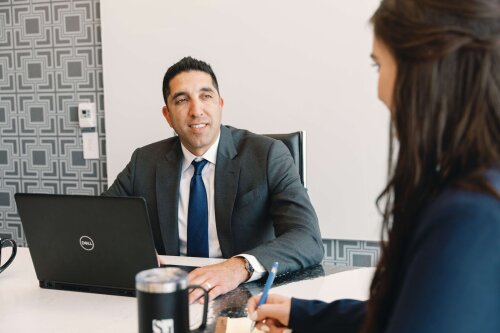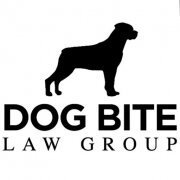Best Motor Vehicle Defect Lawyers in Irvine
Share your needs with us, get contacted by law firms.
Free. Takes 2 min.
List of the best lawyers in Irvine, United States
About Motor Vehicle Defect Law in Irvine, United States
Motor vehicle defect law covers legal claims that arise when a car, truck, motorcycle, or key vehicle component fails to perform safely because of a defect. Defects can be manufacturing errors, design flaws, or failures to warn about known hazards. In Irvine, which is in California, defect claims are handled under a mix of state product-liability law, federal safety standards, consumer-warranty rules, and ordinary negligence law. Remedies can include money damages for medical bills, lost wages, pain and suffering, repair costs, diminished vehicle value, and statutory relief under consumer-warranty statutes. Cases may involve individual lawsuits, lemon-law claims, or larger actions such as class actions or litigation tied to a manufacturer recall.
Why You May Need a Lawyer
Vehicle-defect matters can be legally and technically complex. You may need a lawyer if:
- You or a family member suffered serious or catastrophic injuries, or a death occurred.
- You suspect a safety-critical part caused your crash or injury - for example, brakes, steering, airbags, tires, or electronic systems.
- The manufacturer or dealer denies responsibility, offers a low settlement, or pushes arbitration.
- Your vehicle is subject to a recall but the manufacturer will not provide a timely or acceptable remedy.
- You have a repeated mechanical failure and you believe the vehicle qualifies under California lemon-law protections.
- Multiple parties may share fault - for example, parts suppliers, the automaker, and a repair shop - and you need help identifying responsible parties.
- Insurance companies dispute coverage, or subrogation and complex liability issues arise.
A lawyer helps by preserving evidence, arranging inspections and expert analysis, calculating damages, negotiating with manufacturers and insurers, filing suit or arbitration, and representing you at trial if necessary. Many vehicle-defect lawyers work on contingency-fee bases for injury and lemon-law cases, which means you typically pay nothing up front and pay legal fees only if you recover.
Local Laws Overview
California law is the primary legal framework for Irvine residents. Key local aspects to understand include:
- Product-liability theories - California recognizes three main legal theories against vehicle manufacturers and suppliers: manufacturing defects, design defects, and failure-to-warn or instruct. Plaintiffs can pursue negligence, breach of warranty, and strict products liability when applicable.
- Statutes of limitation - Time limits apply. For personal-injury claims the common limit is two years from the date of injury, and for many property-damage claims the limit is three years. Some product-defect claims use a discovery rule which can affect timing. Because timing is critical, consult an attorney promptly.
- Lemon-law protections - The Song-Beverly Consumer Warranty Act, commonly called the California lemon law, provides remedies for consumers whose new or certified-preowned vehicles have substantial defects that the manufacturer cannot repair within a reasonable number of attempts or an otherwise reasonable period. Remedies may include repurchase or replacement and may include reimbursement for incidental costs and attorney fees in many cases.
- Warranty law - Both express warranties and implied warranties of merchantability apply under California law. Dealership statements, owner manuals, and written warranties all matter.
- Comparative fault - California follows a pure comparative-fault system. If you are partly at fault, your recovery is reduced by your percentage of fault rather than barred if you are more than 50 percent at fault.
- Administrative and regulatory remedies - Federal safety standards set by the National Highway Traffic Safety Administration, state recall reporting obligations, and manufacturer arbitration programs are often relevant. Manufacturer arbitration may be mandatory in some purchase contracts or warranty terms, so review those documents early.
- Small-claims and court options - For limited monetary disputes, California small-claims court may be an option. For significant injuries or complex product-liability claims, superior-court litigation or arbitration is typical.
Frequently Asked Questions
What is the difference between a manufacturing defect and a design defect?
A manufacturing defect is a mistake that happens during the building of a particular vehicle or component - for example, a batch of axles with improper heat treatment. A design defect is an inherent problem in the way a vehicle or part was designed such that every unit built according to that design may be unsafe. Legal proof and expert analysis differ between the two theories.
How can I tell whether my crash was caused by a defect rather than driver error or road conditions?
Determining causation often requires technical investigation: inspection of the vehicle, analysis of repair and maintenance records, review of event-data recorder data if available, and expert testimony. Photos, witness statements, and a quick preservation of the vehicle and parts are important. An attorney can coordinate technical experts to evaluate whether a defect likely contributed to the accident.
What kinds of damages can I recover in a defect claim?
Possible recoverable damages include medical expenses, future medical care, lost wages and loss of earning capacity, property damage, pain and suffering, loss of household services, diminished vehicle value, and sometimes punitive damages when the manufacturer acted with malice or reckless indifference. Consumer statutes like the lemon law may provide remedies including repurchase, replacement, and attorney-fee awards.
How long do I have to file a lawsuit?
Time limits vary by claim type. Personal-injury claims are commonly subject to a two-year statute of limitations, and many property-damage claims have a three-year limit. Product-defect claims and warranty claims can have different deadlines, and discovery rules can affect timing. Because deadlines can bar your case if missed, contact an attorney promptly if you suspect a defect.
What should I do immediately after I discover a defect or after an accident?
Prioritize safety and medical care first. After that, preserve evidence - take photos, keep the vehicle and defective parts if safe to do so, save repair orders and service invoices, write down witness names and contact information, and document communications with the dealer, manufacturer, or insurer. Do not sign away rights or accept a quick low settlement without consulting an attorney.
Does the vehicle manufacturer always pay for recalls?
When NHTSA or the manufacturer issues a recall, the manufacturer is generally required to remedy the defect free of charge, which may involve repair, replacement, or refund depending on the situation. However, the timing of repairs, availability of parts, and scope of the remedy may create disputes. If you experience problems getting a recall remedy, a lawyer can advise and help enforce your rights.
Can I sue the dealership, or only the manufacturer?
Depending on the facts, you may be able to sue the dealer, manufacturer, parts suppliers, or even a repair shop. Dealers sometimes bear responsibility for certain warranty or repair obligations, and sellers can be liable for misrepresentations. Product-liability claims commonly target manufacturers and parts makers, but every situation is different.
What evidence is most important in a defect case?
Critical evidence includes the vehicle itself and the defective part, repair and maintenance records, service invoices, the owner manual and warranty paperwork, photos and video, medical records if injuries occurred, witness statements, and any communications with the manufacturer or dealer. Event-data recorder information and expert inspections are often decisive in proving defect and causation.
Will I have to go to trial?
Many defect cases settle before trial through negotiation or alternative dispute resolution. However, if the parties cannot reach a fair resolution, your case may go to trial or arbitration. A skilled lawyer prepares a case so you are positioned to settle or to try the case if necessary. Your attorney should explain likely outcomes and the costs and benefits of each option.
How much will hiring a vehicle-defect lawyer cost?
Many personal-injury and lemon-law lawyers handle cases on a contingency-fee basis - this means the attorney is paid a percentage of any recovery and no attorney fee is charged if there is no recovery. Other cases, such as non-injury property disputes, may involve hourly fees or flat fees. Also ask about litigation expenses, experts, and how those costs are advanced and repaid. Always get fee terms in writing.
Additional Resources
For help with vehicle-defect issues in Irvine, consider these resources and agencies:
- The National Highway Traffic Safety Administration - federal safety regulator that oversees recalls and safety defect investigations.
- The California Department of Consumer Affairs - consumer protection information and resources about warranties and arbitration.
- The California Attorney General - consumer-complaint assistance and enforcement of state consumer laws.
- The California Department of Motor Vehicles - vehicle registration and certain safety-related administrative issues.
- The U.S. Consumer Product Safety Commission - for vehicle-related equipment and accessories outside direct vehicle manufacturing.
- Orange County Bar Association and local trial-lawyer groups - directories to find experienced attorneys in product liability and lemon-law matters.
- Local courts - Orange County Superior Court for civil litigation procedures and small-claims filing information.
Next Steps
If you believe a vehicle defect has harmed you or your family, take these practical next steps:
- Seek immediate medical attention and keep all medical records and bills.
- Preserve evidence - photograph the vehicle and defects, keep the vehicle and any removed parts if possible, and preserve repair invoices and warranties.
- Keep a detailed log of events - dates of failures, repair attempts, conversations with dealer or manufacturer representatives, and names of contacts.
- File formal complaints where appropriate - for example with the manufacturer and the federal safety agency - and note complaint numbers and responses.
- Contact an experienced vehicle-defect or product-liability lawyer for a consultation. Bring documentation - photos, repair orders, warranty papers, the purchase contract, the insurance policy, medical records, and a written timeline of events.
- Ask the lawyer about likely remedies, statute-of-limitations timelines, fee arrangements, whether arbitration applies, and the need for immediate expert inspection.
- Avoid signing releases or giving recorded statements to insurers or manufacturers before speaking with counsel.
Timely action improves the chance of preserving critical evidence and pursuing the full compensation and remedies you may be entitled to. An initial consultation with a qualified attorney will help you evaluate your options and set a practical plan for moving forward.
Lawzana helps you find the best lawyers and law firms in Irvine through a curated and pre-screened list of qualified legal professionals. Our platform offers rankings and detailed profiles of attorneys and law firms, allowing you to compare based on practice areas, including Motor Vehicle Defect, experience, and client feedback.
Each profile includes a description of the firm's areas of practice, client reviews, team members and partners, year of establishment, spoken languages, office locations, contact information, social media presence, and any published articles or resources. Most firms on our platform speak English and are experienced in both local and international legal matters.
Get a quote from top-rated law firms in Irvine, United States — quickly, securely, and without unnecessary hassle.
Disclaimer:
The information provided on this page is for general informational purposes only and does not constitute legal advice. While we strive to ensure the accuracy and relevance of the content, legal information may change over time, and interpretations of the law can vary. You should always consult with a qualified legal professional for advice specific to your situation.
We disclaim all liability for actions taken or not taken based on the content of this page. If you believe any information is incorrect or outdated, please contact us, and we will review and update it where appropriate.














